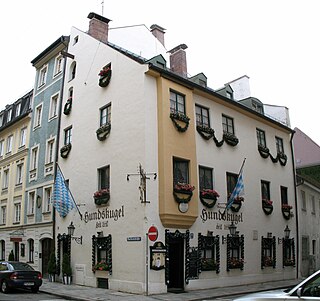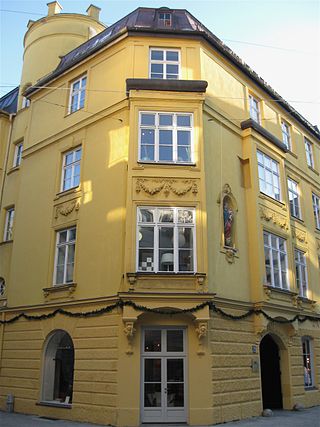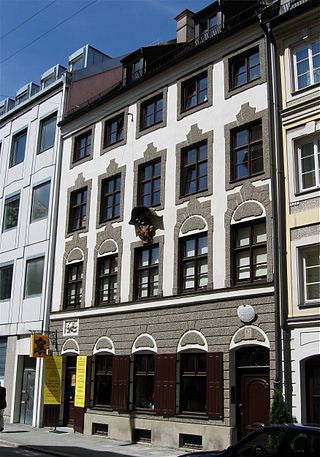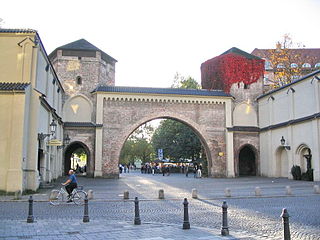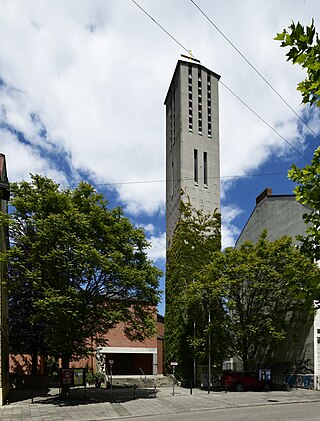Self-guided Sightseeing Tour #6 in Munich, Germany
Legend
Guided Free Walking Tours
Book free guided walking tours in Munich.
Guided Sightseeing Tours
Book guided sightseeing tours and activities in Munich.
Tour Facts
10.7 km
145 m
Experience Munich in Germany in a whole new way with our free self-guided sightseeing tour. This site not only offers you practical information and insider tips, but also a rich variety of activities and sights you shouldn't miss. Whether you love art and culture, want to explore historical sites or simply want to experience the vibrant atmosphere of a lively city - you'll find everything you need for your personal adventure here.
Activities in MunichIndividual Sights in MunichSight 1: Maximiliansanlagen
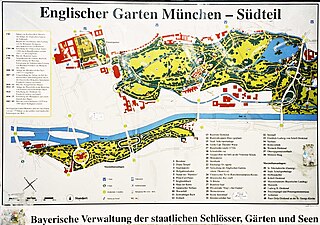
The Maximiliansanlagen are parks and gardens in the Munich districts of Bogenhausen and Haidhausen between the Ludwigsbrücke and the Max-Joseph-Brücke. The central point is the 38-metre-high Angel of Peace. The eastern boundary of the complexes is largely formed by Maria-Theresia-Straße.
Sight 2: Sammlung Schack
The Schack-galerie is a museum in Munich. It is one of the noted galleries in this city. The museum is under supervision of the Bavarian State Picture Collection.
Sight 3: Schnitterin-Brunnen
The Reaper Fountain is a fountain on Thierschplatz in Munich, Germany. It is also called Ceresbrunnen or more rarely Erntebrunnen or formerly after the founder Waitzfelderbrunnen.
Sight 4: Franziskus als Friedensbote
Francis as a Messenger of Peace is a sculpture by the sculptor Martin Mayer.
Sight 5: Regierung von Oberbayern
The building of the Government of Upper Bavaria in Maximilianstraße in Munich houses the Government of Upper Bavaria and the Southern Bavaria Aviation Authority, the aviation authority for the administrative districts of Upper Bavaria, Lower Bavaria and Swabia.
Sight 6: Museum Fünf Kontinente
The Museum Five Continents or Five Continents Museum, located in Munich, Germany, is a museum for non-European artworks and objects of cultural value. Its name until 9 September 2014 was Bavarian State Museum of Ethnology.
Sight 7: Wohnhaus Blum
The Blum residential building at Stollbergstraße 18 is a listed residential building built in 1857 in Munich's Altstadt-Lehel district, which "offers one of the most beautiful residential building facades in the Maximilian style".
Sight 8: Vindelikerhaus
The Vindelikerhaus is a residential and corporate building at Marienstraße 21 in Munich, Germany. It is registered as an architectural monument in the Bavarian List of Monuments.
Sight 9: Fortunabrunnen
The Fortuna Fountain is a fountain in the Lehel district of Munich, Germany. It was created in 1907 by the Munich sculptor Karl Killer. The reason for the construction was the redesign of the square in front of the Isartor.
Sight 10: Valentin-Karlstadt-Musäum
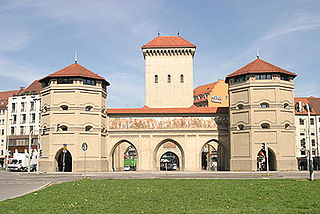
The Valentin-Karlstadt-Musäum is a municipal museum in Munich, Germany, dedicated to the comedian Karl Valentin, his partner Liesl Karlstadt, and Munich folk singers.
Sight 11: Bier- und Oktoberfestmuseum
The Beer and Oktoberfest Museum in Munich deals with the history of beer and the Munich Oktoberfest.
Sight 12: Heilig Geist
Heilig-Geist-Kirche is a Gothic hall church in Munich, southern Germany, originally belonging to the Hospice of the Holy Ghost.
Sight 13: St. Peter
Get Ticket*St. Peter's Church is a Roman Catholic parish church in the inner city of Munich, southern Germany. Its 91-metre (299 ft) tower is commonly known as "Alter Peter"—Old Peter—and is emblematic of Munich. St Peter's is the oldest recorded parish church in Munich and presumably the originating point for the whole city.
Sight 14: Angergymnasium
The Theresia-Gerhardinger-Gymnasium am Anger is a girls' grammar school at Blumenstraße 26 in the Angerviertel in Munich under the auspices of the Poor School Sisters of Our Lady. It is a state-recognized grammar school with linguistic, musical and economic branches. The building also houses a primary school for girls, a kindergarten and a student dormitory of the Poor School Sisters.
Sight 15: St. Jakob am Anger
Saint James's Church, is a church in Munich. It serves the School Sisters of Our Blessed Lady as a monastery church.
Sight 16: Ohel Jakob synagogue
Ohel Jakob Synagogue is a Jewish congregation and synagogue, located at the Sankt-Jakobs-Platz in Munich, Germany. It was built between 2004 and 2006 as the new main synagogue for the Jewish community in Munich. The synagogue was inaugurated on 9 November 2006 on the 68th anniversary of the Kristallnacht.
Sight 17: Orag-Haus
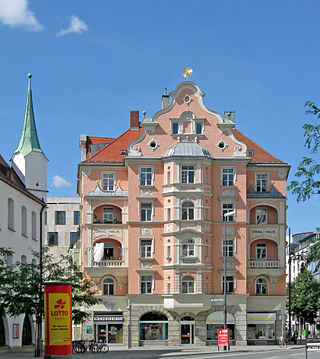
The ORAG-Haus is an administrative building and commercial building in the Angerviertel of Munich's old town.
Sight 18: Löwenturm
The Löwenturm at Rindermarkt in Munich's old town is an approx. 25-metre-high seven-storey brick tower from the 14th century. It is a listed building.
Sight 19: Rindermarktbrunnen
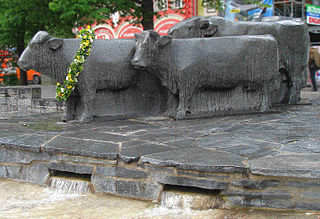
The Rindermarktbrunnen or literally "Cattle market fountain" in English is a modern sculpture in the historical Altstadt of Munich, in Bavaria, Germany. It was created in 1964 by Munich sculptor and professor of the Munich Academy Josef Henselmann in the course of the reorganisation of the cattle market. The fountain was sponsored by Gunther Henle.
Sight 20: Ruffinihaus
The Ruffinihaus is a group of three houses on the Rindermarkt in the Old Town of Munich, Bavaria. It was built by Gabriel von Seidl from 1903 to 1905 and is named after the Ruffiniturm, which in turn was named after Johann Baptista Ruffini. The Ruffiniturm formed the original Sendlinger Tor and thus was part of Munich's first city wall.
Sight 21: Glockenspiel
Join Free Tour*The Rathaus-Glockenspiel is a large mechanical clock located in Marienplatz Square, in the heart of Munich, Germany. Famous for its life-size characters, the clock twice daily re-enacts scenes from Munich's history. First is the story of the marriage of Duke Wilhelm V to Renata of Lorraine in 1568, followed by the story of the Schäfflerstanz, also known as the coopers' dance.
Sight 22: Mary's Column
The Mariensäule is a Marian column located on the Marienplatz in Munich, Germany. Mary is revered here as Patrona Bavariae.
Sight 23: Fischbrunnen
The Fischbrunnen is a fountain in the center of Munich, whose history can be traced back to the Middle Ages. In 1954, Josef Henselmann created the fountain in its present form, using parts of Konrad Knoll’s neo-gothic fountain that was destroyed during the Second World War.
Sight 24: Alter Hof
Get Ticket*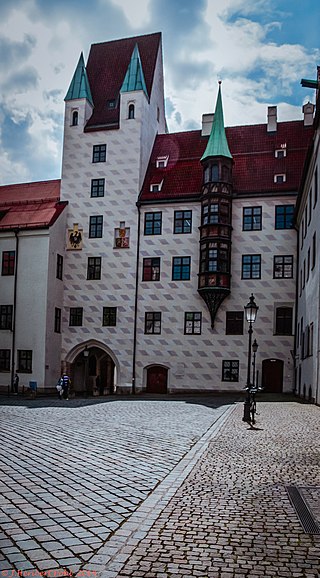
The Alter Hof in the center of Munich is the former imperial residence of Louis IV, Holy Roman Emperor and consists of five wings: Burgstock, Zwingerstock, Lorenzistock, Pfisterstock and Brunnenstock. Like most of the old town, it was rebuilt after being destroyed in World War II.
Sight 25: Pfistermühle
The Pfistermühle is the former grain mill and bakery of the Hofpfisterei in Munich's old town. It is registered as an architectural monument in the Bavarian List of Monuments.
Sight 26: Orlando-Haus
The Orlando House at Platzl 4/4a in Munich's old town was built in 1900 according to plans by the Munich architect Max Littmann, with Heilmann & Littmann as the general contractor.
Sight 27: Hofspielhaus
The Hofspielhaus is a private theatre in Munich, Germany. It was founded in October 2015 by actress and singer Christiane Brammer. Since 2019, it has been a non-profit limited liability company.
Sight 28: National Theatre Munich
The National Theatre at Max-Joseph-Platz in Munich is the venue of the Bavarian State Opera, the Bavarian State Orchestra and the Bavarian State Ballet. It was built in 1811–1818 by King Max Joseph of Bavaria by the architect Karl von Fischer as the Royal Court and National Theatre. The classicist building has been destroyed and rebuilt twice in the course of history. The National Theatre is not to be confused with the neighbouring Residenztheater.
Sight 29: Bayerisches Staatsschauspiel - Marstall
The Marstall, also known as the former Riding School and Marstall, is located on Marstallplatz in the Altstadt-Lehel district of the Bavarian capital Munich. The classicist building was built between 1817 and 1822 by Leo von Klenze and is a listed building.
Sight 30: Haus der Kunst
The Haus der Kunst is a museum for modern and contemporary art in Munich, Bavaria. It is located at Prinzregentenstraße 1 at the southern edge of the Englischer Garten, Munich's largest park.
Sight 31: Bayerische Akademie der Wissenschaften
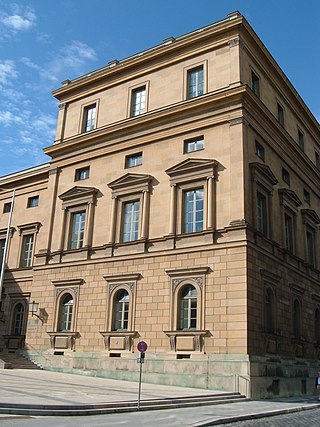
The Bavarian Academy of Sciences and Humanities is an independent public institution, located in Munich. It appoints scholars whose research has contributed considerably to the increase of knowledge within their subject. The general goal of the academy is the promotion of interdisciplinary encounters and contacts and the cooperation of representatives of different subjects.
Sight 32: Flora III
Flora III is a sculpture by Fritz Koenig in Munich. It was unveiled on 4 September 2003 in the cabinet garden of the Munich Residence, which was redesigned by landscape architect Peter Kluska.
Sight 33: Wittelsbacherbrunnen
The Wittelsbach Fountain is a monumental fountain in the courtyard of the Munich Residence. It was built between 1611 and 1623 by Hans Krumpper and Hubert Gerhard in the Renaissance style and is one of the oldest and largest fountains in Munich.
Sight 34: Maximilian I. Joseph König von Bayern
The Max Joseph Monument is a seat sculpture made of cast iron on Max-Joseph-Platz in Munich. Created between 1826 and 1835 by the sculptor Christian Daniel Rauch, it depicts the Bavarian king on the ornate throne. The monument is one of the most important works of classicist sculpture.
Sight 35: Palais Porcia
The Palais Porcia is a Baroque mansion in Munich, southern Germany, which served as residence for Count Fugger. It is Munich's oldest still existing Baroque-style palace.
Sight 36: Palais Holnstein
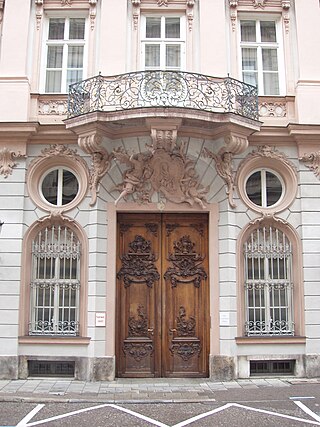
Holnstein Palace is an historic building in Munich, Southern Germany, which has been the residence of the Archbishop of Munich and Freising since 1818.
Sight 37: Palais Seinsheim
The Palais Seinsheim is a city palace in the late Rococo style at Prannerstraße 7 in Munich.
Sight 38: Palais Montgelas
The Bayerischer Hof is a grand hotel in Munich, Germany. It is located on Promenadeplatz in Munich's northwestern Old Town. The Bayerischer Hof is often visited by state guests and other prominent guests.
Sight 39: Teufelstritt
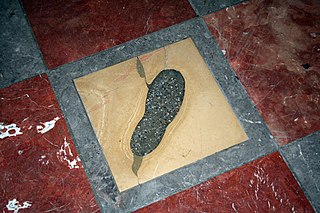
The black step, also known as the devil's step, is an imprint on the floor of the entrance hall of Munich's Frauenkirche.
Sight 40: Museum of Urban and Contemporary Art (MUCA)
The Museum of Urban and Contemporary Art (MUCA) is an art museum in Munich's old town, Germany.
Wikipedia: Museum of Urban and Contemporary Art (EN), Website
Sight 41: Gasthaus zur Hundskugel
The Hundskugel was a traditional restaurant in Munich. It was located in one of the oldest surviving town houses in the city. It is located in Munich's old town in the Hackenviertel at Hotterstraße 18. The building was first documented in 1484/1485. It is a listed building. From 1983 until his murder in 2005, Rudolph Moshammer was the owner of the building and a regular guest at the inn. Moshammer bequeathed it to the city of Munich, with the condition that it be used for a social purpose. Other famous guests were Heinrich Heine, who lived for a time in the nearby Radspielerhaus, Ignaz Günther, Roman Anton Boos and Franz Anton Bustelli. On May 31, 2011, the restaurant ceased operations for economic reasons. The house was converted and operated by the Todenhöfer family's "Sternenstaub Foundation" as a social meeting place.
Sight 42: Radspielerhaus
The listed Palais Rechberg or Radspielerhaus is a city palace in Munich, Germany. It is located at Hackenstraße 7 in the Hackenviertel. The palace was built in 1678 and modified after 1817 by the architect Jean Baptiste Métivier.
Sight 43: Haus zur Hundskugel
The Haus zur Hundskugel is an old Munich town house. It is located in Munich's old town in the Hackenviertel at Hackenstraße 10. The four-storey building was built in 1741 as a result of a conversion, probably by Johann Michael Fischer. After Augustin Ostermayer, the owner at the time of the conversion, the sculptors Johann Baptist Straub and Roman Anton Boos, for example, also lived here. The building is registered as an architectural monument in the list of monuments of the Free State of Bavaria.
Sight 44: Sankt Johann Nepomuk / Asam Church
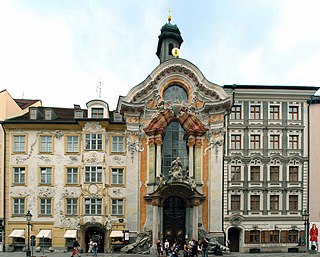
St. Johann Nepomuk, better known as the Asam Church, is a Baroque church in Munich, southern Germany. It was built from 1733 to 1746 by a pair of brothers, sculptor Egid Quirin Asam and painter Cosmas Damian Asam, as their private church. It is considered to be one of the most important buildings of the southern German Late Baroque.
Sight 45: Sendlinger Tor
The Sendlinger Tor is a city gate at the southern extremity of the historic old town area of Munich. It served as a fortification for defence and is one of Munich's three remaining gothic town gates.
Sight 46: St. Elisabeth
The Catholic Church of St. Elisabeth in Munich served as the hospital church of the Elisabethinen and was built in the late Rococo period. It belongs to the parish of St. Peter.
Share
How likely are you to recommend us?
Disclaimer Please be aware of your surroundings and do not enter private property. We are not liable for any damages that occur during the tours.
GPX-Download For navigation apps and GPS devices you can download the tour as a GPX file.
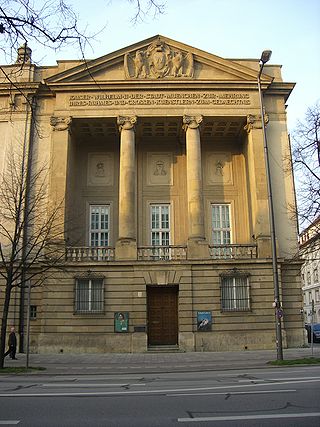
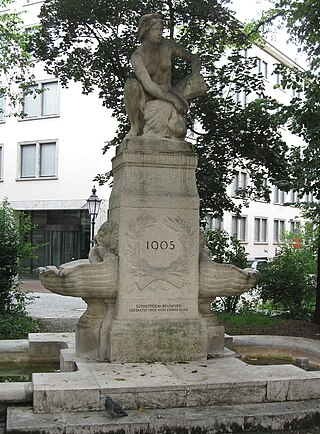
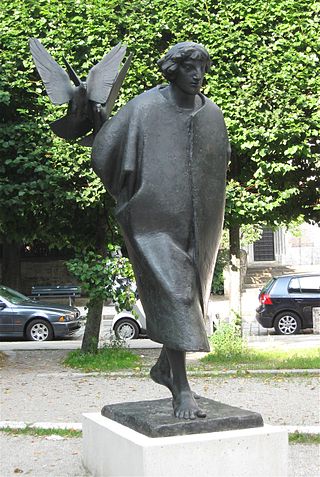
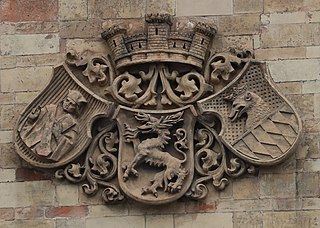
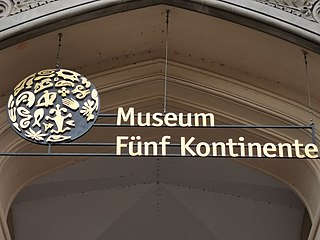
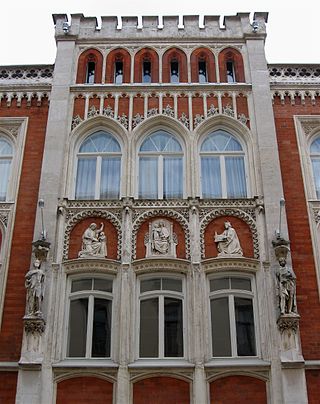
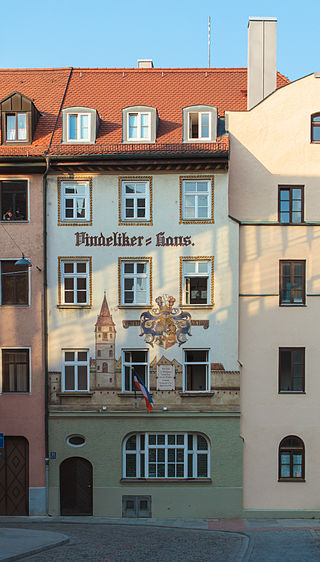
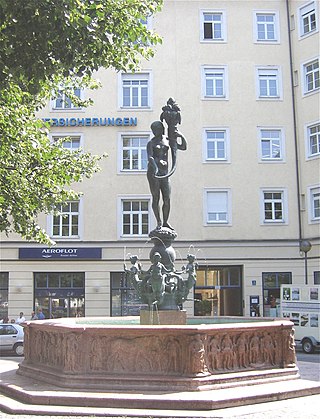
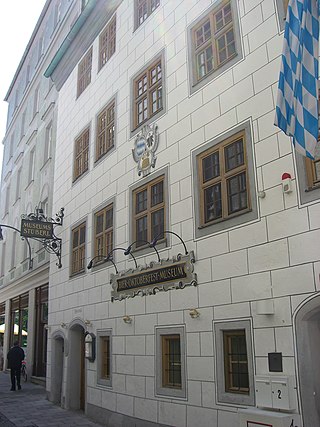
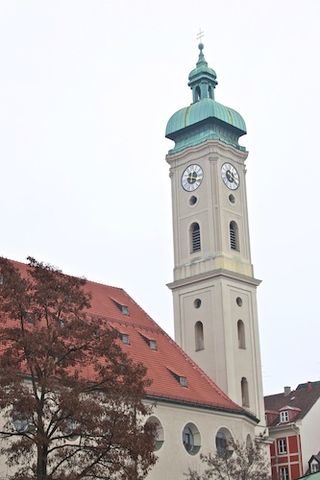
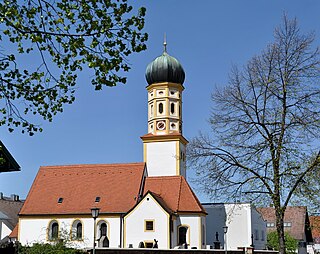
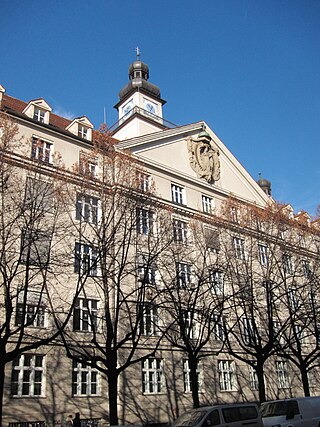
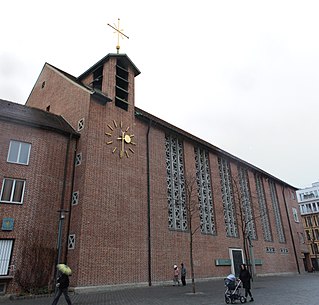
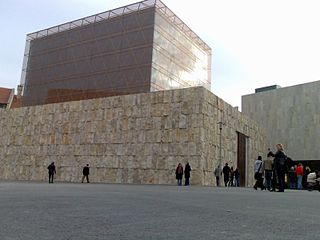
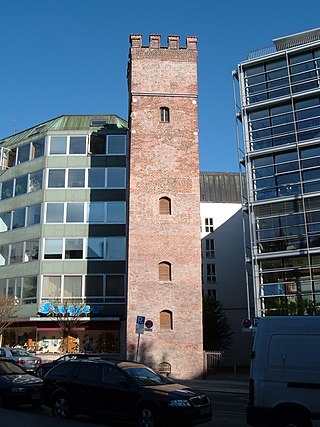
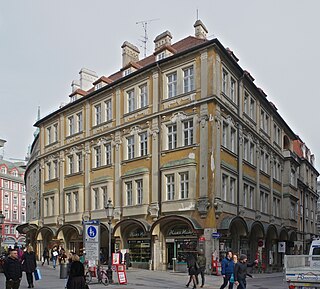
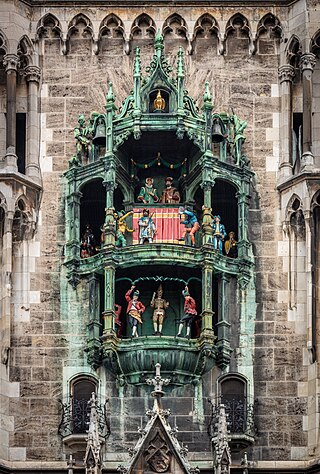
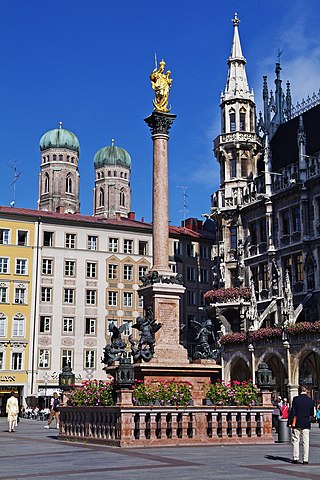
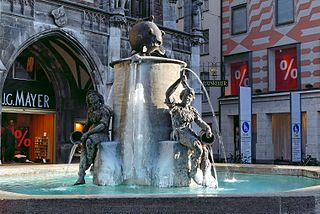
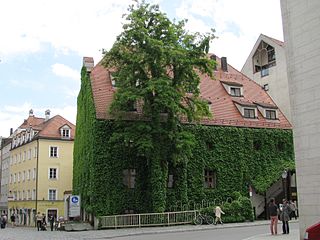
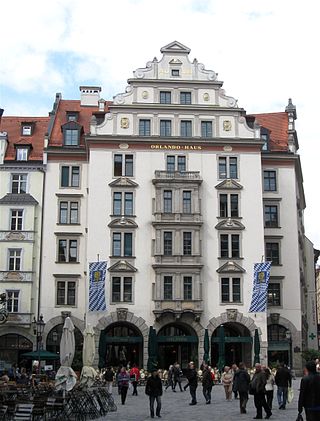
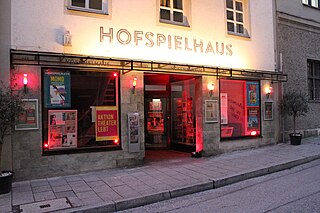
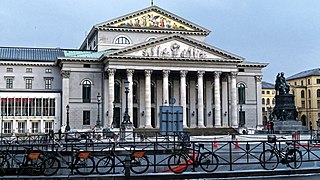
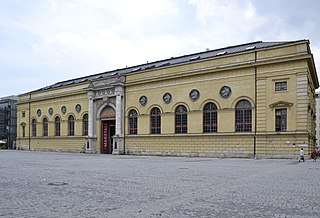
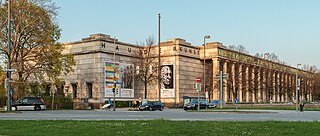
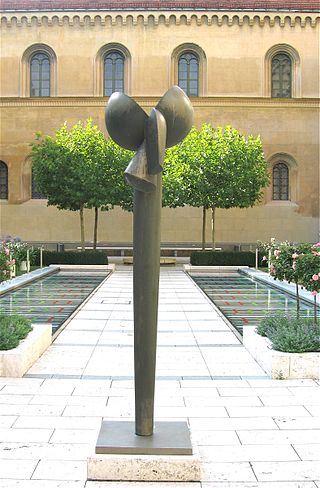
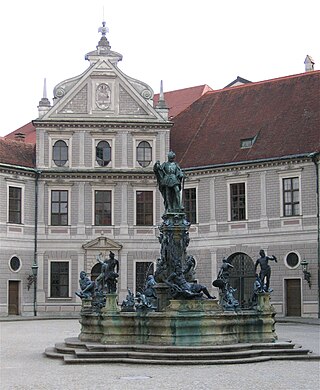
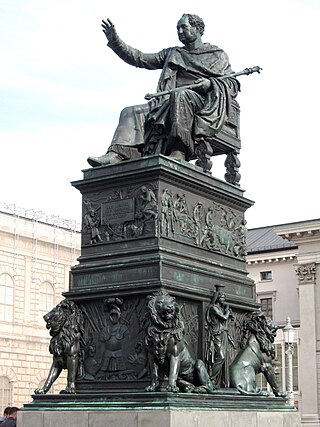
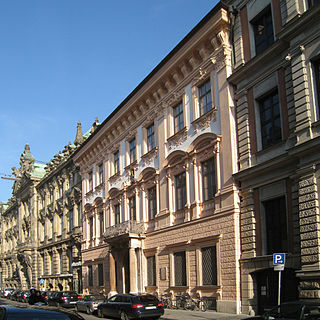
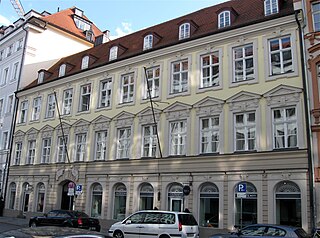
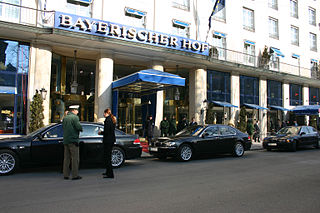
.jpg)
